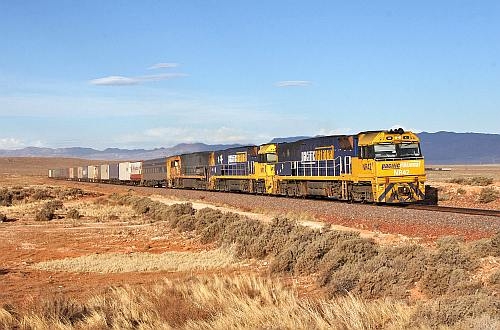While the PN Coal division continued to show strong growth during the first half, this was offset by the performance of PN Rail, which has suffered from persistent weak demand in the domestic economy and the volatility of agricultural traffic.
PN Coal reported revenues of $A 473.4m ($US ) for the first half, a 12.0% increase compared with the previous corresponding period in the previous financial year, with total coal volumes in the states of Queensland and New South Wales increasing by 15.9% to 78.7 million tonnes.
Conversely, PN Rail which operates intermodal and other bulk services across Australia saw its revenues drop 2.9% to $A 667.2m. Soft domestic market conditions saw net tonne-km for the intermodal business drop 2.5% to 11.25 billion tone-km during the first six months, while bulk movements declined 9.5% year-on-year to 7.27 million tonnes, although this was partially offset by an 8.5% increase in steel traffic, which reached 1.46 million tonnes.
"In response to slowing growth in coal haulage, weak top line growth in PN Rail and more active market competition, Asciano must look at more significant evolutionary change around our operational and business processes," says Asciano CEO Mr John Mullen.
The integration of the two business units is expected to generate significant cumulative benefits, and the long-term aim of the project is to cut the cost base of Asciano's rail activities by 10%.
The divisions will formally merge on July 1, although they are already operating under a new management structure. Mr David Irwin, the current director of PN Coal, will be appointed to lead the new combined business.
The new Pacific National division will have three business units; Coal and Bulk Rail - Queensland; Coal and Bulk Rail – New South Wales/Victoria; and Intermodal (to be managed nationally).

